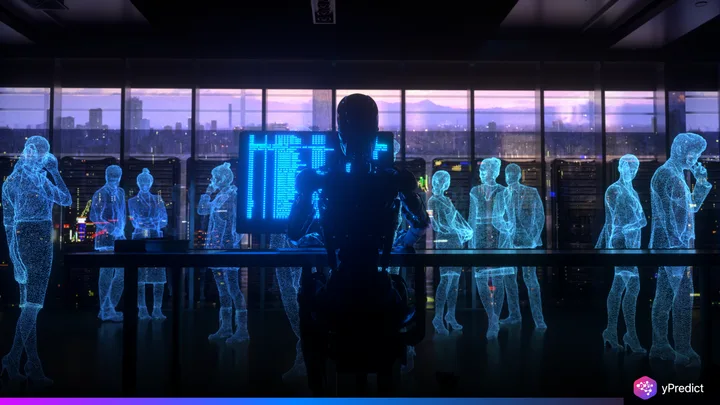
AI clones are transitioning from experimental technology to something people are now incorporating into their daily work and services. Digital clones, essentially software versions of experts, can now respond, explain, and even adapt to personal preferences. The big question is not just what these tools can do, but what they mean for access to expertise. It is becoming more likely that wealthy individuals and big companies will continue speaking with human experts, while most others rely mainly on digital clones. That possibility raises real questions about fairness, trust, and how society chooses to integrate this technology.
Expertise More Accessible With AI Clones
On the positive side, AI clones make expertise more available than ever before. A digital clone does not get tired. It can operate around the clock. It can provide guidance to thousands of people at once. It can be powerful in education. Students in different regions could access the same quality of explanations. Likewise, in healthcare, digital clones can support doctors by handling basic queries and giving patients quick answers. Argil AI and Heygen AI are examples of how companies are experimenting with this kind of personalization. They are training a model on someone’s knowledge to create a teaching assistant.
Likewise, they are building a digital representative for customer service. These tools can reduce costs and save time. It allows human professionals to focus on the more complex and creative work. Traditionally, access to top doctors, lawyers, or teachers has been limited to those living in the right places or able to afford high fees. A digital clone can give people in underserved areas some level of access to expertise they might otherwise never reach. It can expand opportunity at a scale that human experts alone cannot achieve.
AI Gap Between Rich And Poor
However, the other side of the picture is harder to ignore. Right now, the most advanced AI clones are not equally distributed. Wealthier groups and large organizations can afford to use the best versions. It means they get faster results, more accurate outputs, and compounding benefits over time. For people with fewer resources, the options are often limited. They will get stripped-down or free versions that are less effective. That creates an “AI gap” where the rich get richer not only in money but also in knowledge and power. When tools like Argil AI or Heygen AI improve, the question becomes whether they will truly scale to everyone or remain premium products for those who can pay.
There is also the matter of work. Digital clones take over routine tasks quickly and cheaply, which is attractive for companies but worrying for workers whose roles are built on those tasks. Some new opportunities will emerge, such as roles designing, managing, or training these AI systems. But not everyone will be able to transition easily. Past waves of automation show how displacement can hit hardest in regions or industries without strong support for retraining. With AI clones, the pressure may become even stronger because they are not just replacing physical labor but also intellectual and service-based work.
Limits Of Human Judgment In Clones
Digital clones can copy expertise, but they lack human judgment, empathy, and accountability. Talking to an AI may feel humanlike and might be fast and convenient. But it is not the same as speaking with a real professional who can notice subtle cues or provide emotional support along with knowledge. If society leans too much on AI for advice, human skills in communication and authentic personal connections could slowly weaken.
Ethical Risks Of Deepfakes
Ethics and security create more worries. Since AI clones can create realistic speech, images, and videos, they are already being used for deepfakes. The same system that allows a digital clone to represent a teacher or doctor can also be exploited. It can be used to imitate someone without consent. These systems also depend on very large amounts of personal data. It brings up another serious concern about privacy, ownership, and who ultimately has control over a person’s digital identity in the future.
The companies and countries that develop the most advanced AI clones are the ones leading the way. If only a few players have access, then decisions about how these systems are designed and used may reflect only their interests. This could create monopolies and leave many people relying on limited or restricted tools that increase inequality instead of reducing it.






